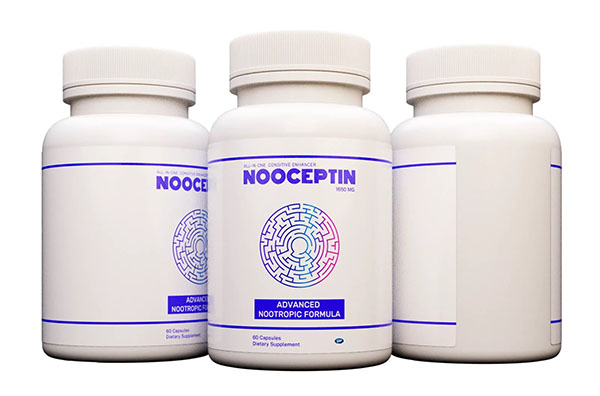
If you’ve been looking through our best nootropics rankings, you’ve likely noticed that many of them contain phosphatidylserine. Many of the most popular brain supplements today use phosphatidylserine (for example, it is a key ingredient in Neuriva).
The reason for this is simple: phosphatidylserine enhances cognitive function in a very real and powerful way. Like many of the most effective nootropic supplements, phosphatidylserine makes fundamental changes to the way the brain works.
But with every stack out there now using this nootropic ingredient, it’s worth wondering whether it is actually safe to use so regularly.
In this article, we’re going to look at the side effects of phosphatidylserine, what causes these adverse effects, and whether the potential benefits are worth the dangers.
Phosphatidylserine Benefits
Phosphatidylserine is a great nootropic for cognitive enhancement in its most general sense. Supplementing with phosophatidylserine improves almost every aspect of cognitive function, from focus and learning to memory and mood.
Because it has such a fundamental effect on brain function, the benefits of phosphatidylserine are broad, including:
- Improved focus and concentration
- Better learning ability
- Enhanced working memory
- Better memory retention and recall (after prolonged use)
- Reduced anxiety
- Better sleep quality
It’s therefore unsurprising that so many nootropic stacks contain phosphatidylserine.
But how does this simple phospholipid do all of this?
How Does It Work?
Phosphatidylserine works by increasing brain cell membrane integrity.
Basically, phosphatidylserine is a major constituent of your brain cell membranes. Without sufficient phosphatidylserine, you simply cannot repair or create brain cell membranes. Low levels of phosphatidylserine also means you cannot properly cycle old brain cells to make room for new ones.

In other words, phosphatidylserine is pretty important for brain function in a very fundamental way.
We can make this and other phospholipids naturally in our bodies, but often not enough to guarantee optimal brain function. Our phosphatidylserine levels also decline naturally as we get older.
As a result, supplementation is usually necessary to prevent cognitive decline.
However, there’s no such thing as a free lunch. Although they are usually safe, phosphatidylserine supplements have been known to cause side effects.
Phosphatidylserine’s Common Side Effects
Before looking at the side effects of phosphatidylserine supplements, we need to say that this nootropic is generally very safe and extremely well tolerated.
Even large doses of phosphstidylserine taken daily do not usually cause problems.
That said, people do experience adverse effects while taking phosphatidylserine. These side effects include:
- Hypotension
- Anxiety
- Disturbed sleep
- Weight loss
Below is a brief description of each negative side effect and its potential causes.
Low Blood Pressure
There is some evidence that taking phosphatidylserine supplements may acutely lower blood pressure. One study on Viacog found that after 30 weeks participants had significantly lower blood pressure. However, Viacog contains DHA as well as PS; DHA is known to help lower blood pressure. Another study found that PS alone was able to reduce blood pressure.
Anxiety
A small but significant number of people have reported experiencing increases in anxiety while taking phosphatidylserine. This is surprising since PS typically lowers anxiety in the vast majority of users.
We don’t know by what mechanism PS would raise anxiety levels, but it is possible that these reports are from people taking multiple nootropics at once. It is also possible that their nootropics are interacting with prescription drugs. This is why anecdotal reports are so often misleading!
Disturbed Sleep
A number of people on Reddit, Longecity and YouTube (as well as on vagarights.com on specific nootropic reviews) have complained that phosphatidylserine causes sleeplessness and sleep disturbances.
Again, we do not know a mechanism by which taking phosphatidylserine would cause you to have disturbed sleep, but the reports are there and significant enough in number to take seriously.
Weight Loss
One side effect of phosphatidylserine which could be construed as a benefit to some is weight loss. A relatively large number of people report losing a noticeable amount of weight while taking phosphatidylserine. User reports vary, with some saying their appetites decreased and others saying they simply lost weight without realising.
It is likely that phosphatidylserine does cause weight loss due to its documented effect on cortisol levels.
Phosphatidylserine & Cortisol
Phosphatidylserine has been shown to reduce the body’s cortisol levels, particularly when in an elevated state due to emotional or psychological stress.
This has been demostrated in several clinical trials using human participants. However, the exact mechanism behind this effect isn’t clear. But the effect has been observed repeatedly so it is definitely real.
Drug Interactions
Phosphatidylserine has no known drug interactions.
However, it is best to check with your doctor before taking phosphatidylserine if you are currently taking anti-depressants, anti-convulsants or anti-anxiety medications. Due to its link with lowering blood pressure, it is vital that you do not take phosphatidylserine if you are also taking hypertension medications without consulting your doctor first.
Is Phosphatidylserine Safe?
So with all that in consideration, is phosphatidylserine safe to take?
The answer is a resounding YES. Phopshatidylserine is safe to take on a regular basis. Even moderate to high doses of phosphatidylserine do not usually cause any side effects whatsoever in the majority of users.
Of course, adverse effects are not unheard of. Any substance which alters brain function in some way is liable to cause some negative effects. But secondary effects from phosphatidylserine are rare and are typically mild.
If you are unlucky enough to experience any unwanted effects from this nootropic, stop using it and those side effects should go away. if they persist, seek medical attention.
Learn more: Neuriva side effects.
Can you take it every day?
Can you take phosphatidylserine every day?
We think it’s safe to say that phosphatidylserine is safe to take on a daily basis.
Studies have used up to 300mg of phosphatidylserine daily for as long as 30 weeks and found the compound to be extremely well tolerated.
For almost all users, phosphatidylserine is practically side effect free. There are some occurences of side effects, and some drug interactions to consider. But overall, this is one safe nootropic.
Looking For Something That Really Works?
See Our Current #1 Rated Cognitive Enhancer: Nooceptin

Nooceptin is our current top rated nootropic. We tried Nooceptin ourselves and found that it works exactly as advertised. Taken together, the ingredients rapidly increase focus, accelerate mental processing speeds, and enhance working memory.
Nooceptin is a truly comprehensive nootropic, providing both immediate and long-term benefits. It does not cause side effects and is considerably better value than other nootropic stacks on the market today.
Nooceptin has been found to effectively:
- ✔️ Boost Overall Cognitive Function
- ✔️ Improve Memory
- ✔️ Enable Better Communication
- ✔️ Enhance Concentration
- ✔️ Improve Multi-tasking
- ✔️ Boost Mental Energy
The really special thing about Nooceptin, however, is its long-term effects. When taken daily for prolonged periods, Nooceptin stimulates neuron growth and improves overall brain cell health. This means it enhances cognition in a deep, meaningful way that keeps giving you benefits after you stop using it.
Simply put, Nooceptin is the ideal brain supplement for people who need to mentally perform at 100% capacity for hours on end. At $69.99 per course, we think it's hard to find a more effective and cost-effective nootropic right now.

Brian Johnson is current Editor of Vagarights.com and a long-time writer for VAGA. A former psychologist, Brian is passionate about improving mental health and finding ways to stave off cognitive decline. He is an expert on nootropics, cognitive enhancement and biohacking more broadly. You can see his work on Google scholar.
Leave a Reply